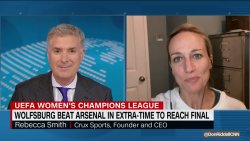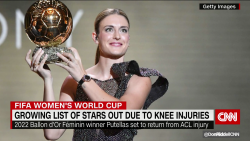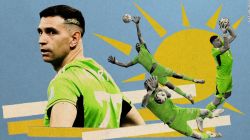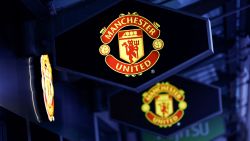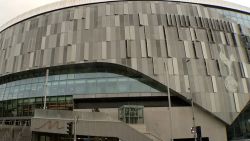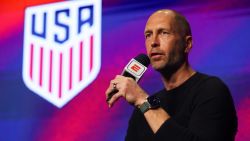Story highlights
Kylian Mbappé joins PSG
$216 million is widely reported for star
Deal follows $260 million Neymar signing
One can be forgiven for thinking the football world has been turned on its head over the past month.
For the second time in a matter of weeks, Paris Saint-Germain have made an earth-shattering deal. Backed by Qatari ownership, the French club inked a one-year loan for 18-year-old forward Kylian Mbappé with a reported transfer fee of $216 million set for next summer.
In any other transfer window, Mbappé’s deal would steal all the headlines. Yet it falls short of future strike partner Neymar’s fee of $260 million, part of a reported total package of nearly half a billion dollars signed by the Brazilian last month.
Although both figures dwarf Manchester United’s $105 million record signing of Paul Pogba set just last year, there is more than just inflation in play, say analysts.
“For Qatar, capturing Neymar realizes the dream when it bought (PSG) in 2011,” says James Montague, author of “The Billionaires Club: The Unstoppable Rise of Football’s Super-rich Owners.”
“Namely, to be at the very top table of European soccer, signing top players in their prime and appearing to be just as an attractive option as Barcelona and Real Madrid.
“This adds to the power of PSG’s brand, which ultimately helps to promote Qatar internationally,” he adds.
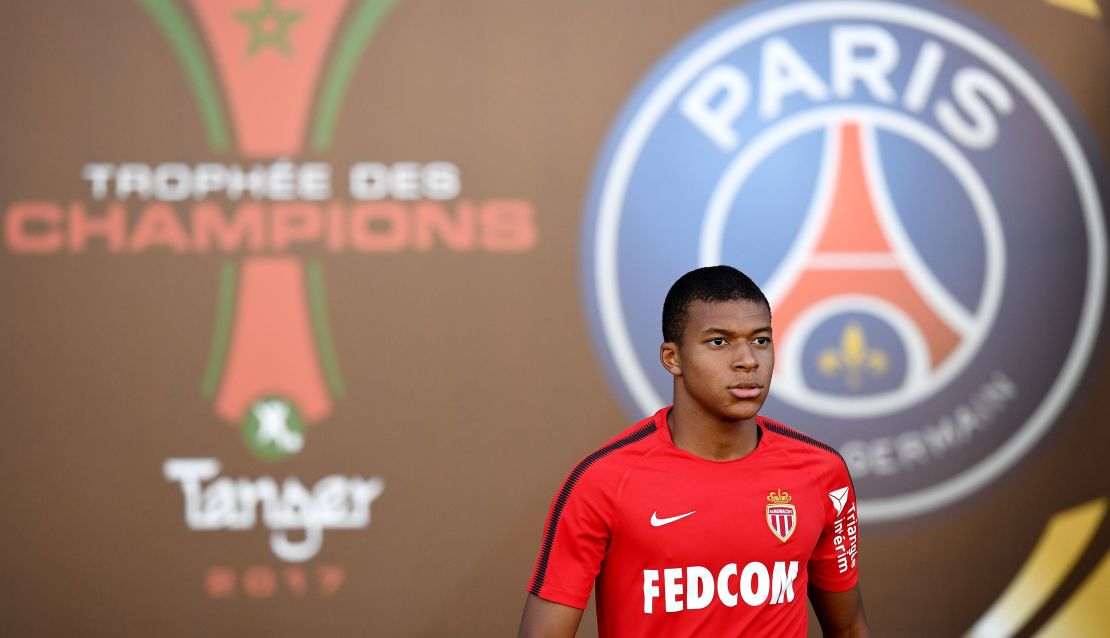
Playing hardball with soft power
The concept of soft power, which the British Council defines as “a country’s ability to make friends and influence people not through military might, but through its most attractive assets, notably culture,” has been a part of international sports since the dawn of the modern Olympics.
But its rise in club football came to prominence once the rulers of Abu Dhabi purchased Manchester City in 2008, in part as a game of “one upmanship in the intense competition” with Dubai, its prospering neighboring emirate, Montague highlights in his book.
“When you have states buying football clubs,” he says – noting the blurred line between state funds and private wealth in the region – “their interest is to burnish their reputations. This is a soft power issue. This is a political issue.”
Dubai, it should be noted, made a splash back in 2004 by placing the name of its state carrier, Emirates Airlines, on Arsenal’s new stadium in a reported deal of approximately $160 million that included jersey sponsorship.
Not to be outdone, Abu Dhabi branded Manchester City with its carrier, Etihad, in a reported $640 million deal in 2011.
Meanwhile Qatar, via its national carrier and the charitable Qatar Foundation, inked its own sponsorship deals with Barcelona. Then in 2011 it purchased a controlling interest in the French capital’s marquee club.
PSG was asked to comment on the influence of its transfer policy by owners Oryx Qatar Sports Investments, but did not respond to CNN.
“Football is unquestioned in its international reach and adulation,” says Montague, “so if you want to project an image of yourself on an international stage, there is no greater vehicle than a suitable football club.
“Owning a football club, sponsoring a stadium, having your name on a shirt, being seen in over 200 countries around the world, week in, week out, without any kind of negative connotations feeding into people’s homes: That is an incredibly powerful tool to mold an image on an international stage.”
Neymar: The world's most expensive footballer
READ: Meet PSG’s new $216M star Kylian Mbappé
Can anyone else compete?
Profits, apparently, take a back seat to image building when it comes to the likes of Manchester City and PSG.
Between 2009 and 2016, City posted a loss of approximately $1 billion, according to Roger Bell, author of the football finance report “We’re So Rich It’s Unbelievable! – The Illusion of Wealth Within Football.”
“The numbers are quite startling,” Bell told CNN Sport, adding that Chelsea, owned by Russian billionaire Roman Abramovich, lost nearly $675 million in that time frame. “The issue is, are they making it difficult for everyone else to compete?”
In his report, Bell notes that 60 to 80% of revenues from most English Premier League clubs are generated from lucrative TV rights sales. Those rights appear under threat given the viewing habits of younger audiences less inclined to pay for expensive cable and satellite TV packages.
The world’s richest sports league, the NFL, posted a nine percent drop in viewership for most of last season, according to research analysts MoffettNathanson. SKY TV, the Premier League’s main carrier in the UK, suffered a 14% fall in its live football coverage last season, according to the FT.
So, while the likes of Manchester City and PSG appear immune to a fall in viewership numbers – though perhaps not a fall in energy prices – their competition in Europe may not be as sheltered.
Summer transfer window: 25 major moves
Montague, for one, seems less concerned with declining TV ratings.
“There are still huge opportunities when it comes to other forms of watching (football),” he says. “Remember, although people are cutting chords, they are still watching. They are just watching it in different ways.
“You’re going to see new players in the market,” he says, noting Twitter’s involvement in streaming live sports.
READ: Liverpool agree to $62 club record fee for Keita
READ: English soccer’s first openly gay referee has a lot to say
‘Half a billion is peanuts’
For PSG and its Qatari owners, the soft power plays of purchasing football magicians like Neymar and Mbappé appear to be working.
But Qatar’s main football ambition – hosting the much maligned 2022 World Cup – has generated mixed results since the bid was awarded in 2010.
The country’s recent stalemate with neighboring UAE, Bahrain and Saudi Arabia – who have levied terror-funding accusations against the country, among other charges (all which have been vehemently denied by Qatar) – is a prickly thorn in its quest to host the tournament without blemish.
“Ultimately, (the World Cup bid) hasn’t been the positive experience I think they were hoping for,” says Montague. “They’ve been putting out fires almost since they day they won it.”
Indeed, Qatar has battled charges of manipulating the World Cup voting process – which it has been cleared of by FIFA – and of poor treatment of migrants building the tournament’s stadiums. The country’s human rights record that includes a ban on homosexuality has also been put into question.
“It’s brought a magnifying glass on Qatari society that I don’t think it was prepared for, and I don’t think it’s particularly happy about it,” adds Montague.
When asked for comment, a Qatar government official said: “Qatar has always said the 2022 FIFA World Cup would accelerate the nation’s development goals, and act as a catalyst for continued progress across workers’ welfare and labor reform.
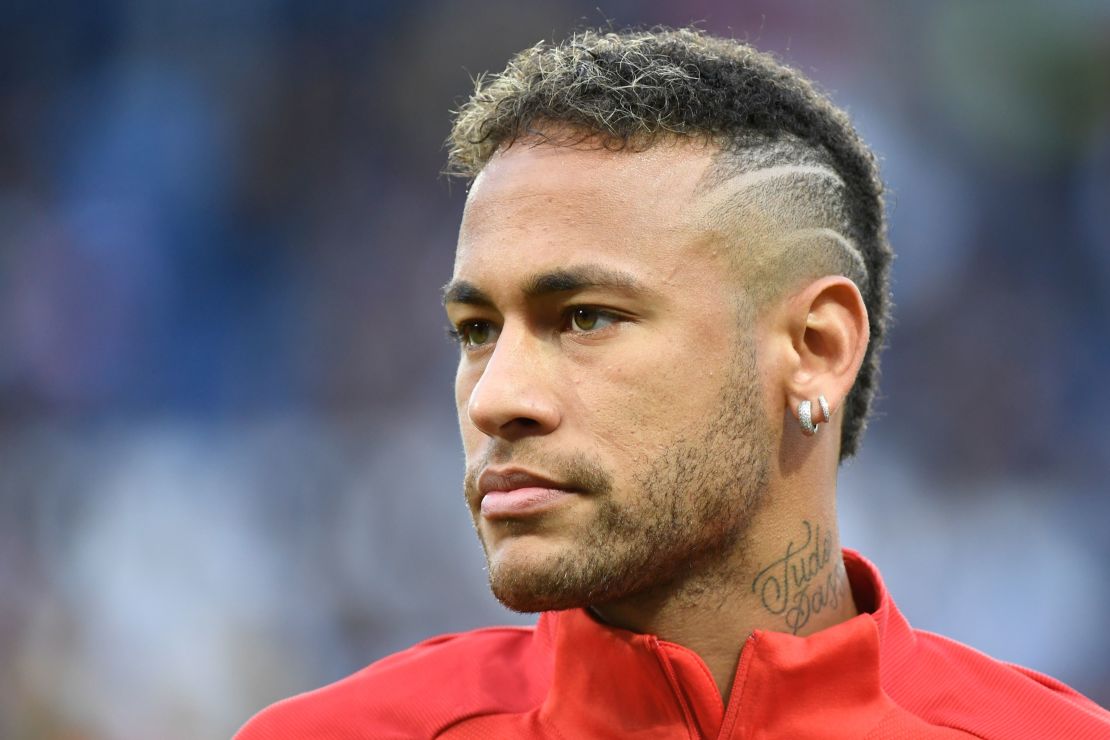
“This World Cup is delivering programs that boost the economy, develop skills across Qatar and the region, and inspire and accelerate development to drive effective social change in communities.”
In the meantime, the introduction of PSG’s two superstars is a powerful counterbalance to the ongoing Gulf crisis and those accusations, says Montague – despite the record fees.
“The money is actually a drop in the ocean for Qatar Sports Investments,” he says, “for the chance to turn PSG into a Barcelona-style super club that promotes Qatar around the world.
“And to prove to its neighbors that whatever blockade they put up, they can still operate as before, if not stronger?” adds Montague.
“In those terms, half a billion dollars is peanuts.”


